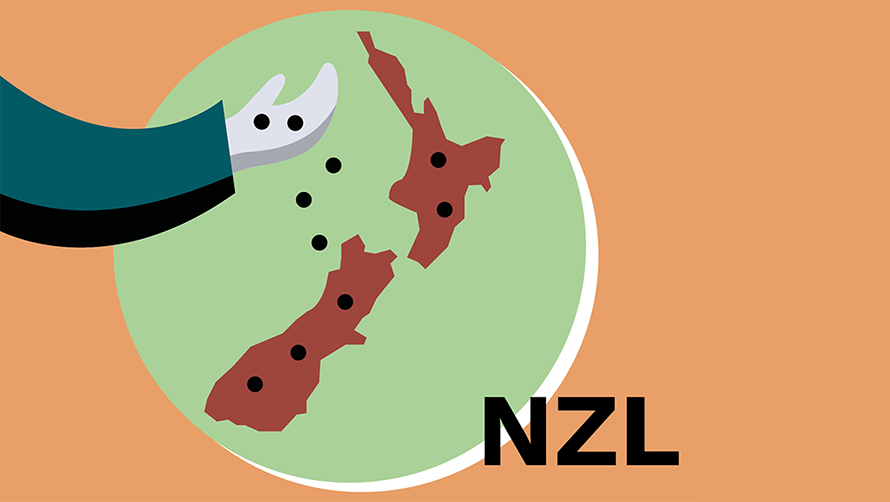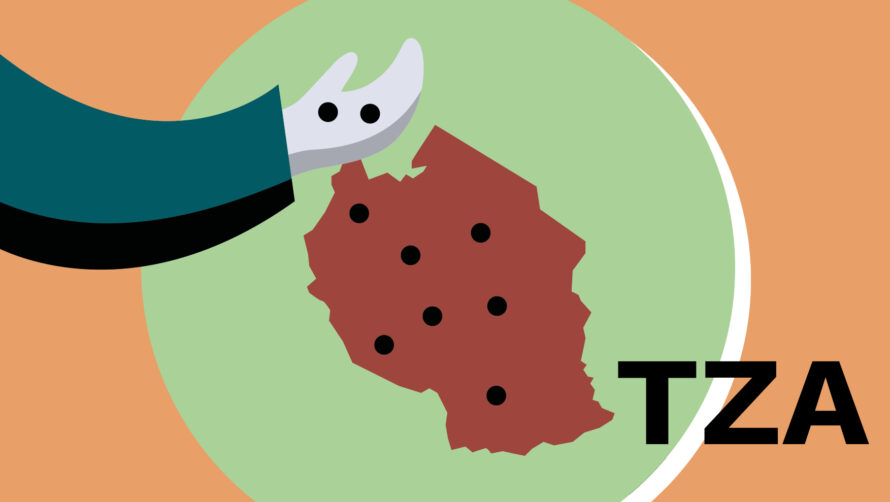Guest Contributions
This website offers space to fellow researchers, who discuss emerging perspectives on the making and unmaking of (agrarian) institutional landscapes worldwide. If you are interested in contributing, please contact me directly!
In this space, a particular focus will be put on emerging perspectives in a fast-changing field, where sometimes assumptions and statements made in the past hold no longer true in the present; where just another crisis or government regulation has crashed the dreams of investors; where suddenly AG tech and not farmland is heralded as the most promising new “asset class”, or where methodological advances now suddenly allow us to account in more granular ways about trends and investment footprints in the ‘AG space’. It is also a chance for scholars to revisit their own (past) research in light of recent advances in debates and research findings. We will offer fellow researchers exposure on the platform, as well as graphic design services in case you would like to contribute figures or photos. In this space, guest contributions are published.
Submissions are ordered chronologically. They can also be found in the “Emerging perspectives” section in “Follow the Money“, as well as in “Frictions“, in “Aotearoa New Zealand” and in “Tanzania“.
Search Contributions

December 2025
#29 Following the Paths of Assetization: Notes from the Brazilian Agriculture Case
Vanessa Perreira Perin follows the opaque and far-flung pathways of agricultural assetization in Brazil.
Read more
October 2025
#28 A Raw Deal? The True Cost of Dairy in Aotearoa
Māori scholar Matt Wynyard situates increasing tensions about the social and ecological costs of dairying in Aotearoa New Zealand.
Read more
September 2025
#27 Land and Power: Inside the Rise of the World’s Transnational Landowners
Philip Seufert and Luciana Rolon provide insightful reflections on a new report by FIAN International and Focus on the Global South, which calls for bold land redistribution and global tax reforms to reverse the dangerous trend of financialization-driven, deepening land inequality.
Read more
July 2025
# 26: New Glossary Entry “Capital Gains”
Capital gains represent a major black box in research on the finance-driven land rush, yet they are central to the process of ‘value creation’ that asset managers claim to pursue. Benjamin Braun provides a genral perspective on the capital gains-inequality nexus.
Read more
June 2025
#25 Towards a Land-first Food Movement in the Global North: A New Collection on Sustainable Food and Land Governance
Adam Calo, Sylvia Kay, Sarah R Sippel, Coline Perrin, and Kirsteen Shields explore how geographically variegated property regimes in the Global North shape the scope of the commodification and assetization of farmland, and discuss radical alternatives to private property.
Read more
May 2025
#24 What Happens on an Assetized Farm? Transnational Farmers in Soylandia
Building in years of anthropological work and his agronomic expertise, Andrew Ofstehage summarizes his new book Welcome to Soylandia: Transnational Farmers in the Brazilian Cerrado.
Read more
April 2025
#23 New Glossary Entry “ESG”
ESG has become a common term in the world of money management, including the field of agri-investment. Claire Parfitt provides a critical genealogy of the term.
Read more
January 2025
#22 Tanzania’s Land Rush – A Zero-sum Game: Farmland Investments in Tanzania
Agri-investments often live through political regimes, and in cases of radical political change, the hopes of investors may be thwarted by unforeseen events and dynamics. With its recent turbulent political history, Tanzania offers unique opportunity to investigate the multilayered and changing politics of farmland investments. Joanny Bélair has taken up this task in her research and recent book “Tanzania’s Land Rush”, from which she reports.
Read more
December 2024
#21: Introducing a New Collection on Digital Transformations in Global Land, Housing, and Property
Hilary Faxon, Desiree Fields, and Thomas Wainwright introduce a new theme issue, just published in Environment and Planning D: Society & Space, that investigates how digital innovations are changing the nature and value of land and housing across both country and city.
Read more
November 2024
#20: Who Owns the Land? An East German Perspective
Clemens Jänicke and Daniel Müller tackle the question of who owns the agricultural land in the federal state of Brandenburg in northeast Germany, part of former East Germany.
Read more
September 2024
#19: Canceled Land Deals, International Arbitration, and the Limits of the Global Investment Regime – The Case of Tanzania
Drawing on years of ethnographic research that culminated in a recent monograph, Youjin B. Chung chronicles the trajectory of a large-scale agricultural investment in Tanzania, putting a particular focus on shifting state-capital relations and the role of international arbitration when capital and the state fall out with each other.
Read more
August 2024
#18: Digitalization for Financialization – How New Agricultural Tools Are Facilitating Farmland Investment
Until recently, scholars have solely focused on the assetization of farmland by financial investors, somewhat unnoticing a parallel trend: the rise of investment into ‘digital agriculture’. Emily Duncan tells us more.
Read more
June 2024
#17: Methods to Research Land Ownership and Advance Land Justice: The Appalachian Land Study
Reflecting on their work on land ownership in Central Appalachia, Lindsay Shade and Levi van Sant demonstrate the importance of building grassroots knowledge and solidarity through collaborative action research.
Read more
May 2024
#16: Finance and the Growth of Corporate Food in Egypt
North African and Middle Eastern actors and spaces have received very little coverage in the engagement with the finance-farming-nexus. Marion Dixon’s book The Frontier of Corporate Food in Egypt is an important correction to this geographical bias, offering a deep account of how the corporate food regime manifests itself in one of Africa’s largest economies.
Read more
March 2024
#15: Land Assembly, Financialization and Agriculture in Canada’s North
Building on her long-lasting interest in settler-colonial land transformations in Canada, Sarah Rotz focuses on a hitherto neglected topic: The expansion of large-scale agriculture in the country’s north.
Read more
February 2024
#14: Land Question 2.0 – First Cracks in the 20th Century Property Consensus
Offering an analysis that bridges the urban and the rural, Alexander Dobeson and Sebastian Kohl attend to recent cracks in the property consensus that have emerged over the past years due to the widespread and conflict-laden assetization of both urban and rural land in the Global North and South.
Read more
January 2024
#13: The Work of Money in Assembling the Aotearoa New Zealand Dairy Industry
Russell Prince, Matt Henry, Michael Mouat and Carolyn Morris take the Fonterra’s pricing practices as a starting point to engage with the question of how we can deal with the social and political character of money and its derivative forms.
Read more
November 2023
#12: Local Actors and the Work of Investment Mediation in Australian Agriculture
Zannie Langford opens our new theme on “intermediaries” – a neglected class in research on the assetization of farmland and agriculture.
Read more
October 2023
#11: The Promise and Pitfalls of Using Land Titles Data to Track Agricultural Land Ownership – An Australian Perspective
Bill Pritchard and Cathy Sherry on the promise and pitfalls of using land titles data to track agricultural land ownership in Australia.
Read more
June 2023
#10: How Farmland was Financialized…for Groundwater
Anthropologist Julia Sizek’s account underlines the entangled nature of land and water speculation, with the Californian state playing a central role in this.
Read more
May 2023
#9: Sorting out Ownership Questions – Digging into Financialization through Land Titles Data
André Magnan and Annette Aurélie Desmarais show why obtaining and using land titles to study of changing farmland ownership patterns on the Canadian prairies hasn’t been easy.
Read more
April 2023
#8: New Glossary Entry: “Money”
Anitra Nelson engages with the social character of money, an “object” largely unquestioned in investment discourses.
Read more
March 2023
#7: Agri-finance and the State – Changing Corporate Strategies and the Financialization of Agriculture: Revisiting the Case of Argentina
Carla Gras and Andrea P. Sosa Varrotti revisit their work on agri-investments in Latin America.
Read more
March 2023
#6: New Glossary Entry: “Patient Capital”
Partly building on his work in Tanzania, Gideon Tups helps us make sense of the keyword “patient capital”, which has become a buzzword in development finance.
Read more
February 2023
#5: Sorting out Ownership Questions – The Ultimately Unclear Beneficiaries of Power in Industrial Agriculture
Sociologists Loka Ashwood and Phil Howard engage with the problem of tracing ownership relations along the agri-investment chain.
Read more
January 2023
#4: Follow the Money – Catching up with Time
‘Follow the losses’: Tijo Salverda discusses the temporal dimension of agri-investments for a case in Zambia.
Read more
December 2022
# 3: Follow the Money – The Case of Brazilian Agri-investments
Samuel Frederico discusses the challenge of ‘following the money’ in the case of Brazilian agri-investments.
Read more
November 2022
#2: First guest posts on Brazil, US, Zambia and Argentina in the making
We are happy to announce that several colleagues from around the world have agreed to contribute to our guest writers’ sections.
Read more
August 2022
#1: Agri-investment scholars of the world unite!
We are online! Check out our website and guest writer section.
Read more